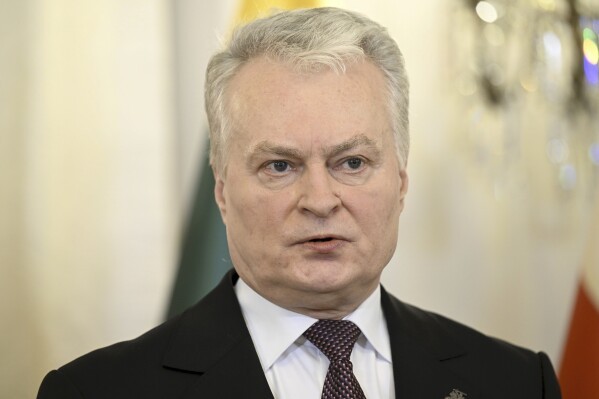
Lithuania announced plans to increase its defense spending to an unprecedented 5-6% of GDP starting in 2026, becoming the first NATO member to commit to such high military expenditure levels amid growing concerns about Russian aggression.
Lithuanian President Gitanas Nausėda revealed the decision made by the State Defense Council on Friday in Vilnius. While noting that Russian military aggression remains "real but not imminent," Nausėda emphasized the need for stronger defense capabilities.
The Baltic nation, which currently spends just over 3% of GDP on defense, would surpass Poland's 4% to become NATO's highest defense spender relative to economic output. The move comes as European NATO members grapple with heightened regional tensions following Russia's invasion of Ukraine.
The decision aligns with U.S. President-elect Donald Trump's calls for NATO members to boost defense spending to 5%, though many European allies have expressed reservations about such dramatic increases. Countries like Spain, currently at 1.5%, and France, managing high debt levels, face challenges meeting even the current 2% NATO target.
However, Baltic states view increased military investment as necessary insurance against potential future threats. "Our security is also assured by our membership in the NATO alliance, but it will only be effective if we are prepared to defend ourselves," Nausėda stated.
Margarita Šešelgytė, director of the Institute of International Relations and Political Science in Vilnius, explained the urgency: "We are a front-line state and should act like one. The war is ongoing and Russia's military production is functioning at full capacity."
Lithuania plans to finance this expansion through international borrowing, leveraging its strong economic growth. While acknowledging the substantial budget impact, officials view the investment as necessary given the current security landscape and uncertainties surrounding future U.S. commitment to regional defense.
The Baltic nation's bold move reflects growing determination among NATO's eastern members to strengthen their defense capabilities, even as western European allies debate the feasibility of major military spending increases.